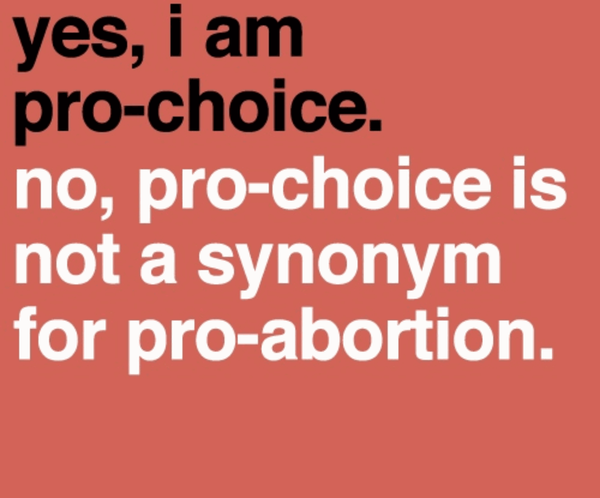What I've observed to be the most important universal rule for the world is the right to life. And the most pernicious mistake that the world has been making is against that right. My belief that life begins at conception is completely factual, and not biased. The bulk of the abortion argument lies within the question, "when does life begin?" Abortion is the deliberate termination of a human pregnancy, most often performed during the first 28 weeks of pregnancy. In today’s modern society abortion is something that has become more and more common over time.
According to CDC, the Centers for Disease Control and Prevention, 699,202 legally induced abortions were reported to the CDC from 49 reporting areas just within the year of 2012. The controversial topic of whether or not abortion is morally right or wrong can be determined based entirely on scientific fact. First, we know that our United States Constitution states that “all men are created equal.” And that all people have the right to “life, liberty, and the pursuit of happiness. From a biological standpoint, it has been proven that a child is a living, human being beginning with immediate conception.
Dr. Dianne N. Irving’s article, “When Do Human Beings Begin?” from Princeton University’s International Journal of Sociology and Social Policy states that when fertilization begins, parts of human beings have been changed into a whole human being. “During the process of fertilization, the sperm and the oocyte cease to exist as such, and a new human being is produced.” This author, as well as many other scholars and experts, have agreed on this undeniable fact. With that being said, in any situation, one must consider the fact that the life or death of a being should not be determined by the size, level of development, environment, or dependency.
Can we say that it is reasonable for a 5-year-old to be murdered because of what we think he is going to become, or the current financial situation he is in? Doing so would assume that we can take away from the fact that the 5-year-old is a living being with his or her own rights. If the live being inside of a women’s stomach is alive just as well, then we must not rob that person of his or her rights based on the circumstances mentioned earlier. Doing so directly contradicts one of our most fundamental human rights, the right to life.
The website str.org states that the violinist argument is probably the most prominent arguments in favor of abortion today. This viewpoint was developed by Judith Jarvis Thomson, an American moral philosopher, and metaphysician. Her argument provides a scenario of women being kidnapped and wired to a famous violinist, due to a fatal kidney ailment that the violinist carries. In the hospital that the woman is in, the director comes and informs the woman that the Society of Music Lovers set up the attachment, and the woman would have to wait for 9 months until the violinist is healed, and then he can be detached from the woman. Thomson then proposes a question, “Is it morally incumbent on you to decide this situation?” She proceeds on to state that staying connected to the violinist to keep him alive would be a heroic act, and she then affirms the fact that all persons have the right to life, therefore, the decision on whether or not to keep the violinist alive is overrun by that fact.
In result of this, Thomson claims that most people would think that having to go through with a pregnancy that is against a person’s consent would be outrageous, as shown in the violinist illustration. This argument, although precisely and carefully worded, is ultimately faulty. According to Greg Koukl of standtoreason.org, Thomson uses two highly persuasive argumentative techniques, slippery slope, and what Koukl describes as an appeal to our civil sense of justice. A slippery slope gesture in argumentation uses moral parallels to make an assumption that is not entirely true.
Greg Koukl uses this example, “murder is immoral, and some think capital punishment is similar enough to murder to make capital punishment immoral as well.” Thomson’s view on abortion suggests that in the context of the process of involuntary pregnancy, to not abort the fetus is to commit a “heroic act” which is described as being voluntary with no moral obligation. This take implies that since it would be okay to pull the plug on the violinist, due to a lack of consent, then pulling the plug on an unborn child would be morally justified as well. If the first scenario is morally correct then the next is morally justified as well.
According to the article summarizing the “violinist argument” on the stand to reason website, the main question that should be asked when dealing with slippery slope arguments is whether or not the two events compared are truly similar in a moral way. After looking at the evidence provided to answer this question, I must agree with Gregg Koukl in his breakdown of the inconsistencies of Thomson’s argument. It is evident that there are many differences between pregnancy and the violinist scenario. It was stated earlier that the violinist is attached to the woman. In comparison to pregnancy, it can be seen that making the comparison between these two scenarios is impossible and inconsistent due to the fact that in pregnancy, the fetus, is not attached, it is simply in its home, where it belongs. Pregnancy is natural, attaching a famous violinist to a person without consent is not. The violinist argument further makes a logical inconsistency. Within this argument, the woman pulling the plug on the violinist is simply what Koukl describes as “withholding treatment.”
To have a more accurate representation of abortion, the violinist should instead be cut off brutally end the violinist life through poisoning or some form of dismemberment. Since the fact that a fetus is a living being immediately upon conception has been proven already, one can make the conclusion that abortion is the murder of a living human. The argument also makes a dangerous presupposition that a mother has no moral obligation to her child. The analogy equates what the article calls a “stranger/stranger” relationship to a “mother/child” relationship.
Many other authors such as Eileen McDonagh make even more violent claims, assuming that the unborn child is an invader is a violent attacker, which implies the justification of the murder of the child. It must be remembered that in Thomson’s argument, she concedes the fact that any fetus is a person at the moment of conception. Therefore, in order for this argument to be consistent, it would have to be true that killing any child can be morally justified.
I am aware that there are many reasons in our society today that seem to give logical reasons as to why abortion should continue to be legal. One, for example, is considered as the “My body, my choice argument.” This argument states that a woman should be able to decide whether or not to abort a child because the baby is within the female’s body. This argument disregards that fact established earlier, that a human being begins with fertilization. Arguments like these are considered as self-defeating. That response to that argument can be applied to another claim that was touched on earlier about one’s financial circumstances and obligations. If a woman were to decide to have an abortion based upon her financial situation, it can be proven that making that decision assumes that the being that is unborn is not alive and therefore isn’t allowed any human rights. This assumption, once again, is fundamentally false, based upon the fact that humans begin within the initial process of fertilization.
In conclusion, what do we do with this information? I must encourage the reader to take this information to heart and review it for yourself. In any debate discussion of ideas, it is imperative that one is a lover of the truth. A desiring the truth to the point of taking the obligation of changing your mind in the event of being wrong. Friends, do not ignore the truth after it has been revealed. Instead, embrace it, permit the truth to provoke a new perspective to you, and grow from it.





















